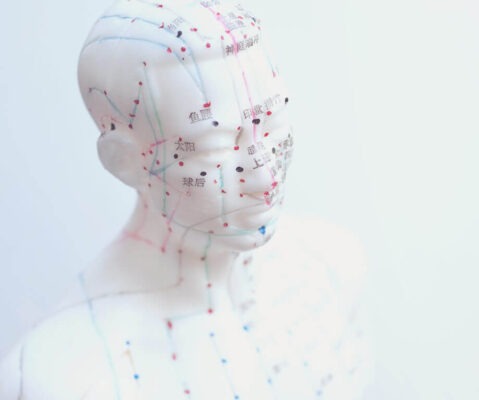Assignments of the flavors to the 5 elements of TCM
A matter of good taste
WOOD - sour taste
In nature, spring corresponds to the wood element. As if on command, the seeds and seedlings suddenly begin to shoot upwards. For us humans, too, we can really feel that nature is awakening to new life. The wood element has a strong upward force that allows plants to flourish after hibernation. Spring is at the beginning of the year and so the wood element also represents the first years of a person's life. The wood element represents childhood. Children, like spring, are also full of energy and constantly growing.
The associated organs are, as already mentioned, the liver and gall bladder. The emotions associated with the wood element are anger and rage. The proverb: "He must have a louse on his liver" points to this connection. By nature, the liver and gallbladder tend to be stagnant, hot, and lacking in blood and juices.
Most acidic foods are thermally cold or refreshing. This property greatly benefits the often overheated liver because it cools the heat back down. Stress is one of the main causes of overheated or stagnant liver. This results in digestive problems and internal irritability.
Sour has an astringent effect. Due to this property, sour foods are very suitable in case of acid deficiency, or to protect the body from loss of juices. That is why fruit and fruit teas are very good during sports activities in summer, because they compensate for this loss.
Sour moves the Qi inward and downward. This process is desirable in all processes in which the Qi rises too much upward, such as internal heat, migraine, anger, but also anger and sleep disorders. Sour gently brings this soaring energy back down.
However, if there is a Qi deficiency with flatulence, bloating and mushy stools, the Qi is already lowered. Sensitivity to cold also indicates a lowering of Qi. In this case, sour and cooling foods such as tropical fruits, tomatoes, fruit teas and sour milk products should be avoided, as they increase the lowering effect.
The inward force can also have negative effects. If someone is suffering from a cold, sour and cooling foods should be avoided because they push the cold from the outer layer of the body to the inside, which can increase the damage.
FIRE - bitter taste
Summer corresponds to the Fire element. In human life, it is embodied by the youth. The organs belonging to it are the heart and the small intestine. "Time" is one of the most important concepts of our present time. It is associated with fire. Time pressure is one of the main causes of various heart diseases in our society. But restlessness in the heart also occurs due to excessive desire and the addiction to distraction. If you want to bring peace to your heart, contentment and the realization that everything is transient is good medicine. The taste of the fire element is bitter.
Bitter can have a dehydrating effect. Especially those foods that have become bitter by roasting, frying or grilling. Cigarettes, coffee, black tea have a strong dehydrating effect and thus deplete the juices of the heart. Enjoyed in excess, these foods cause blood deficiency, yin deficiency or heat of the heart. This leads to typical symptoms such as sleep disorders and inner restlessness.
Bitter can also have a refreshing effect. Chicory, arugula, dandelion and radicchio are used to counteract dehydration of the heart. They can be used for sleep disorders or intellectual overload. Acid-refreshing foods such as wheat also moisten the juices of the heart and promote sleep.
Bitter directs the Qi downward. For this reason, bitter liqueurs, bitter herbs and salads have a digestive effect. They stimulate fat digestion and the downward function of the gallbladder. Examples include: Basil, arugula, dandelion, fresh oregano, rosemary, artichoke, thyme and turmeric.
If there is moisture in the body due to too many sweets or dairy products, the bitter taste provides the "bitterly necessary" compensation.
EARTH - sweet taste
The earth generally represents the center. In the seasonal cycle, it corresponds to the time of harvest. But also the transitions between the individual seasons are assigned to it. Therefore, especially in these transitional periods, it is important to pay attention to optimal nutrition. The sweet taste is the nourishing one, so to speak, and makes up the largest part of the food. Sweet nourishes and moisturizes at the same time, because this taste strengthens the yin and yang roots equally. Therefore, it is very important especially in childhood. In the human body, the earth element accomplishes the transformation from the foreign to the body's own. This happens both on a physical and spiritual level.
The associated organs are the spleen and stomach, and their main function is to extract foreign Qi from food for transformation into the body's own Qi. Furthermore, the spleen provides Qi as well as humidification for the body. This is necessary so that muscles and tissues remain elastic and well nourished.
Qi deficiency in the spleen is often manifested by flatulence, bloating, fatigue, lack of concentration and cravings for sweets. This results in water retention, especially in the upper parts of the body, face, arms and hands and it causes cellulite. The tendency to varicose veins, spider veins and bruises also indicate a Spleen Qi deficiency. Digestion is already weakened to the point that food cannot be sufficiently transformed.
The negative emotions associated with the earth element are brooding and worrying. Someone who istThe fact that a person does not eat or drink all day puts a direct strain on his digestion and wastes valuable energy unnecessarily.
Sweet builds up qi. This is especially true of vegetables, grains, meat and fish, egg, legumes, fats, nuts and seeds. The taste is usually a mild one. These foods can be eaten throughout the year. The sense of taste is under the control of the spleen. That is why the Spleen is the only organ that makes its Qi deficiency known through a clear craving for sweet things. However, this does not mean factory sugar, because it has the opposite effect. It stifles the spleen's Qi and robs the body of valuable vitamins and minerals.
Sweet moisturizes. Sweet builds up juices and therefore has a calming effect. I.e. taken in reasonable proportions can promote relaxation and a good night's sleep.
METAL - sharp taste
The season corresponding to the metal is autumn, which is also called the little yin. Nature slowly begins to retreat. That is, the yang (outwardly directed) decreases and the inwardly directed yin increases. As the juices of the plants now move inward, so does the Qi move inward. There is a drying up of the "superfluous".
If you think of the metal, you can see in it the following qualities: a razor-sharp mind, sense of the essential and justice.
The organs corresponding to the metal element are the lungs and large intestine. Both love moisture in moderation and have an aversion to dryness. Therefore, especially the lungs, in the winter time, are very stressed by the warm air in rooms. Furthermore, all dehydrating stimulants such as cigarettes, coffee and black tea have unfavorable effects on lung energy.
The Qi of the Lungs forms the basis of the immune system and is nourished by the Qi of the Spleen. Dampness in the Spleen (due to too much sugar and dairy products) and a Qi deficiency in the Lungs (due to heating, stress or stimulants) are the cause of many colds in adults and children.
The flavor is the spiciness. All hot spices are warm or even hot. In many countries with high temperature, despite the external heat, people eat spicy food. The reason for this is the antibacterial effect of the spiciness. Unfortunately, this often injures the qi of the lungs. This can show itself in the form of skin problems.
Sharp disperses cold and relieves stagnation. In the case of a cold, this effect is desirable, as well as in the case of weakness of Yang. If you drink a hot and spicy drink, such as ginger tea or mulled wine, at the beginning of a cold, your pores are opened and you start to sweat. This drives out the cold.
If there is coldness inside the body, this causes a slowing of the flow of qi and thus blood. Typical signs are cold feet, urination at night, a weak libido and back pain after getting up in the morning, which gets better with exercise. This indicates yang weakness of the kidneys. In this case, regular small amounts, of hot and spicy spices can get the Qi moving again.
Hot directs qi upward and outward. Therefore, even with low blood pressure, qi and yang deficiency, hot and spicy spices should be used regularly, in small quantities. For someone suffering from high blood pressure, such hot and spicy foods are naturally contraindicated.
Now what to eat in the fall? All so-called white vegetables such as celery, cauliflower, radish, leek, onion and salsify are suitable. They are effective for dry cough and for dry constipation. Rice is the grain associated with the metal element.
WATER - salty taste
The great yin, as winter is called in China, represents the water element. It has come to the complete withdrawal of the juices and plants and animals hold hibernation. Humans also feel this inwardly directed energy, as long as they have an awareness of it. Life now takes place more at home. The urge for activity is strongly limited. One concentrates more intensively on oneself during this time, reads more, meditates or relaxes.
Courage and willpower, which are assigned to the water element, need exactly this withdrawal to reach full maturity. The "water organs" are the kidneys and bladder. The kidneys are the seat of our innate life energy, which we must protect. The kidneys are damaged by anything cold. Be it tropical fruits, ice cream in winter, airy belly-less clothes in the cold season, but also the ever-popular cheese sandwich.
This results in a loss of vitality, drive and zest for life. Sugar also has fatal effects on the yang of the kidneys.
Salty softens blockages when the food comes from the sea such as seafood, fish and seaweed. In Asian countries, seaweed is used to prevent and treat cancer because of its blockade-removing effect. However, when enjoyed in excess, salt has an opposite effect and hardens. As is the case with too much consumption of cheese or sausage. Because these foods are, for taste reasons, heavily salted. Hardening corresponds to a Yin deficiency of the kidneys in which bone weakness can occur.
Salt discharges downward. This effect is used for constipation as well as for intestinal cleansing with Glauber's salt. The downward and inward conducting effect of seaweed leads to the fact that the minerals contained therein are stored in the bones.
In contrast, the calcium in milk is deposited on the outside of the bone and this can lead to joint disease!
EXCURSUS: DAIRY PRODUCTS
Dairy products have a strong moisturizing and mucus-forming effect in the human body. Moisture is also called yin fullness and this means that water with toxic substances dissolved in it is stored in the tissues. This is found mainly in overweight people. However, it can also occur in normal weight people. Typical signs are a feeling of heaviness in the arms and legs, a dull feeling in the head, dejection and water retention.
The consumption of dairy products has increased enormously in the last decades and this leads to the fact that in many people the digestive power, i.e. the digestive fire, is weakened. An improvement occurs with renunciation of moisture-forming foods such as dairy products, bread and very sweet.










